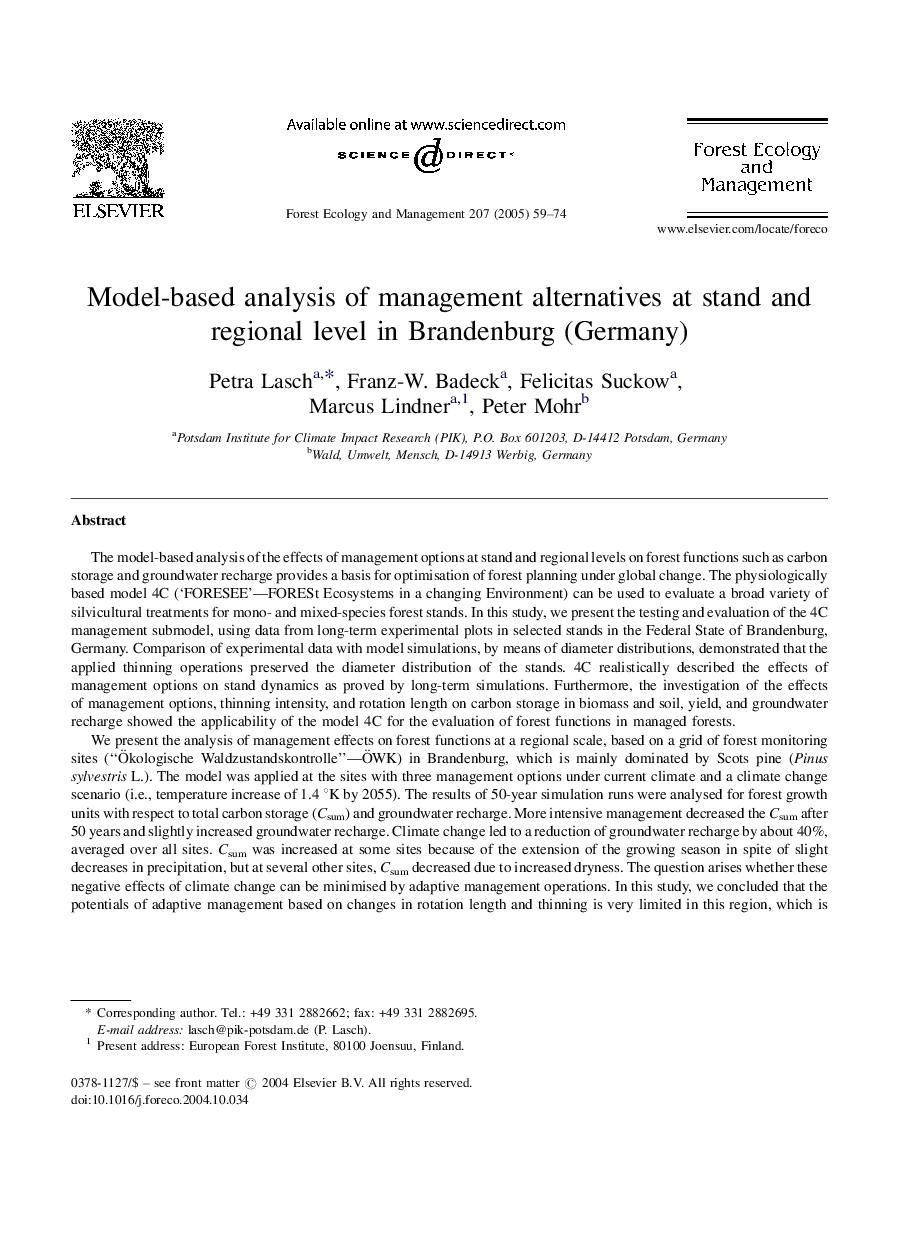| Article ID | Journal | Published Year | Pages | File Type |
|---|---|---|---|---|
| 9620439 | Forest Ecology and Management | 2005 | 16 Pages |
Abstract
We present the analysis of management effects on forest functions at a regional scale, based on a grid of forest monitoring sites (“Ãkologische Waldzustandskontrolle”-ÃWK) in Brandenburg, which is mainly dominated by Scots pine (Pinus sylvestris L.). The model was applied at the sites with three management options under current climate and a climate change scenario (i.e., temperature increase of 1.4 °K by 2055). The results of 50-year simulation runs were analysed for forest growth units with respect to total carbon storage (Csum) and groundwater recharge. More intensive management decreased the Csum after 50 years and slightly increased groundwater recharge. Climate change led to a reduction of groundwater recharge by about 40%, averaged over all sites. Csum was increased at some sites because of the extension of the growing season in spite of slight decreases in precipitation, but at several other sites, Csum decreased due to increased dryness. The question arises whether these negative effects of climate change can be minimised by adaptive management operations. In this study, we concluded that the potentials of adaptive management based on changes in rotation length and thinning is very limited in this region, which is characterised by poor sites and dry climatic conditions. We concluded that it is necessary to include forest transformation strategies in management impact analyses for forest planning under global change.
Related Topics
Life Sciences
Agricultural and Biological Sciences
Ecology, Evolution, Behavior and Systematics
Authors
Petra Lasch, Franz-W. Badeck, Felicitas Suckow, Marcus Lindner, Peter Mohr,
